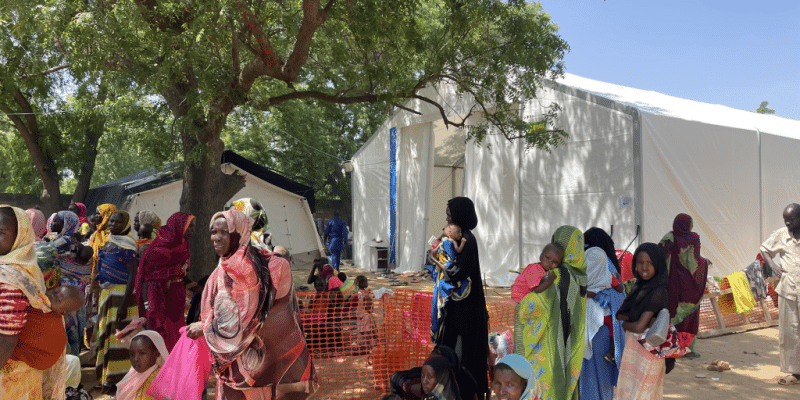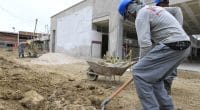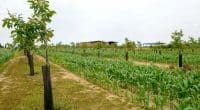As the war that has ravaged Sudan since April 2023 continues, the World Bank has announced funding of $130 million. This support should ensure food security for some of the displaced populations across the country.
The war that has been going on in Sudan for a year pits the Sudanese armed forces led by General Abdel Fattah al-Burhan against the Rapid Support Forces (RSF) led by Mohamed Hamdan Dogolo, alias Hemeti. With the world’s attention now focused on the Middle East and Israel’s war in the Gaza Strip, the United Nations (UN) reports that 8.2 million Sudanese have been forced to leave their homes to seek refuge within the country and in neighbouring countries.
This crisis comes at a time when Sudan, like most countries in North and East Africa, is facing climate change. These two factors have exacerbated food insecurity, which now affects 37% of the population, or around 17.7 million people across the country. This is 17 times more than the number of people suffering from famine in Gaza.
Community resilience
In response to this situation, the World Bank is announcing the activation of its Sudan Transition and Recovery Support Multi-Donor Trust Fund (STARS), which will release $130 million with the support of Canada, the European Union, Finland, France, Germany, Ireland, Italy, Saudi Arabia, the Netherlands, Norway, Spain, Sweden and the United Kingdom.
Read also- MOZAMBIQUE: deadly floods threaten food security in Boane
This grant is earmarked for the implementation of the Community Resilience Building Project (Sudan Somoud). The funding will be managed by the United Nations Children’s Fund (UNICEF) and the World Food Programme (WFP) in partnership with international and local non-governmental organisations (NGOs).
Support for agricultural cooperatives
This grant will “improve access to essential services and food security for more than 560,000 displaced people and members of host communities across Sudan”, explains Victoria Kwakwa. According to the World Bank’s Regional Vice President for Eastern and Southern Africa, the Sudan Somoud project aims to improve food security by strengthening the resilience and agricultural capacity of more than 16,000 farmers and cooperatives in conflict-affected areas, as well as supporting the private sector “as a key component of a renewed functional market system”.
Sudan's 2023 planting season was deemed subpar, according to @FAO's newly published annual Crop and Food Supply Assessment Report.
Cereal production witnessed a 46% decline from the previous year and about 40% below the average of the prior five years.
🔗https://t.co/OrTF1bN4Tu pic.twitter.com/jKMeQEAzOX
— FAOSudan (@FAOSudan) March 20, 2024
To achieve this, local and international organisations will need to focus on developing agricultural value chains and expanding community cooperatives and outlets for vulnerable groups, especially internally displaced people.
Jean Marie Takouleu







